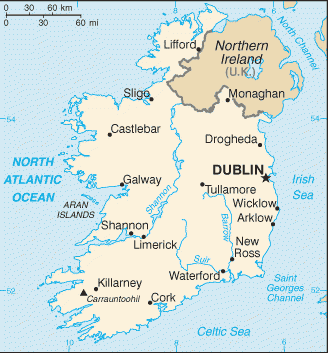There has been a lot of excited talk lately about how Northern Ireland is "certain" to unite with the Republic of Ireland. How likely is this?

When the Irish Republic became independent, the Protestants in the north declined to join them, worried about living in what they considered to be a Catholic theocracy. They weren't entirely wrong - the Irish Republic was dominated by the Catholic Church, so much so that they didn't allow divorce till 1995, (and the referendum to allow divorce passed by only 50.28% to 49.72%).
The minority Catholics who remained in the north thought they could try to force the North to join the Republic through a campaign of terror that lasted decades, till the Good Friday Agreement peace process brokered a peace deal (though the peace is imperfect - "dissidents" regularly place bombs all over the place, including near schools - the only reason more people haven't been killed is due to excellent policing by the Northern Ireland police force.
Sinn Fein (the political arm of the main terrorist group, the IRA) consented to the peace deal because they believed that soon there would be a demographic majority for Catholics in Northern Ireland thanks to their higher birth rate (Catholics famously don't use contraception or have abortions, and as a result the number of Catholics in NI had been rising dramatically since the 1920's).
They now believe that Brexit has caused a tipping point (as it will reintroduce a border between NI and RoI) making a United Ireland up for grabs in the next decade.
The Demographics
The last census in 2011 showed the following:
Roman Catholics 40.8% (up from 40.2% in 2001)
Protestants 41.6% (down from 45.6% in 2001)
Other religion 5.8% (down from 6.1% in 2001)
No religion 10.1%
Religion not stated 10.1%
As you can see, the Catholic portion has not really increased much (despite emigration of Catholic Polish people to Northern Ireland).
What has happened is the growth of "No religion" and "refuse to state religion".
These are people following the trend already set in the rest of the UK towards being atheist or agnostic.
So there is no "Catholic majority" desperate to join the Republic. It's possible that this is because young Northern Ireland people either move to Britain to work, or to the Republic to work.
The Financial Issue
Northern Ireland runs a massive deficit, spending £12bn more than it raises in taxes each year. This is a big overspend for just 1.5 million people. The funding gap is plugged by tax money from the English.
In the event of NI joining the Republic, the burden of funding would fall to the Republic. Unlike the West Germans who generously funded the reunification with East Germany, the people in the Republic appear to be reluctant to make up the funding gap for NI, arguing in favour of spending cuts instead. But faced with either staying in the UK and continuing to be funded by the English, or leaving the UK and facing spending cuts, voters in the areas affected (the public sector) would vote to stay in the UK.
Some people in the Republic have floated the idea of the UK continuing to fund NI even if they left - but this is akin to saying to someone, "I want you to pay my bills even though we are divorced". It's a non-starter.
Some have suggested that the EU provides the money - but the EU will struggle to do this, especially as so many poor countries have joined it. With Brexit removing a big net contributor, the EU will struggle to maintain existing transfer payments, let alone increasing them for Northern Ireland.
If the Republic cannot or will not fund NI, the north is likely to vote No. Worse, the funding issues may make the south vote No too, which would make any future unification dead in the water.
The NHS
The UK has the National Health Service, which provides healthcare from cradle to grave, free at the point of use. In the Republic they have to buy health insurance or pay their fees up front. It costs 50 euros just for a GP visit for example.
Many older Northern Ireland people, who are dependent on the health service, will be reluctant to vote to join the Republic.
In light of all the above, I'm surprised that the British government has not called a referendum to settle the issue and progress the Brexit talks. If NI votes to stay in the UK, then there is explicit consent for a border. If they vote to leave the UK. then that solves the border issue as well.
To the question in your title, my Magic 8-Ball says:
Hi! I'm a bot, and this answer was posted automatically. Check this post out for more information.